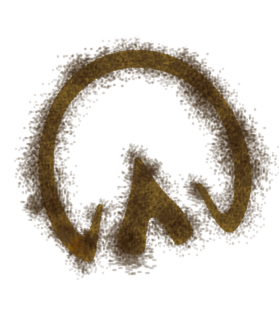Hay Everyone!
It’s hard to believe. Back to school season is upon us once again. I’m excited to see students repopulating the campus as we prepare for classes and our students’ return here at the Equine Science Center. Most of us associate school with learning, after all, that is its primary purpose. Most people have some idea of how they learn and retain information. What do you know about how horses learn, though? I thought I’d take a short dive into the research on learning and cognition in horses and report back to you.
First, let’s get some definitions out of the way. This way I’ll be sure we’re all talking about the same things. Learning is simply the acquisition of knowledge or skills. Cognition is a closely related concept and refers to the mental action or process of acquiring and understanding knowledge. Now, most horses do a lot of learning in the context of training and thus, understanding how horses and humans interact is important to understanding how horses learn.
Many researchers have asked whether horses can recognize familiar and unfamiliar humans. The answer is yes! So, if you think your horse recognizes you when you arrive at the barn, you’d be correct. It seems horses can use visual (sight), auditory (hearing), and olfactory (smell) information to identify people and most often use a combination of these factors. Perhaps even more impressively, horses can recognize people in photographs. Horses also seem to know whether someone is paying attention to them as they’re more likely to approach an attentive human than an inattentive one.
There is an ongoing debate whether horses can learn through observation. Observational or social learning occurs when a horse learns something through watching another horse perform the task. Most people would like to believe this is true, but the research on this topic has led to mixed results. It seems a horse’s ability to learn through observation may be dependent on many other factors including the relationship between demonstrator and observer.
In many species, discriminative learning and generalization are studied to better understand how the animal learns. Discriminative learning centers around an animal’s ability to discriminate between objects. It might be something like a circle and triangle. The horse or other animal learns that choosing the circle results in a reward (often food). I’m trying to convince researchers that doughnuts would be the best reward! Horses can discriminate between objects and some colors. Generalization takes this a step further. If the horse originally learned that choosing a 2D circle resulted in a reward, then generalization would consist of the horse choosing a 3D circle (sphere) or something similar in future trials. Again, mixed results have been obtained, but it does seem horses can generalize. Their successfulness depends on the object and type of generalization being asked for.
Another type of learning researchers study is reversal learning. In reversal learning trials, the animal is originally taught something. For an example, the horse might learn that going left in a maze leads them to a reward. After the animal has learned the task, it is reversed. In this example, the reward would now be located in the right arm of the maze. Researchers can then measure how long it takes the animal to learn the new location. Thus far, this type of research has indicated horses’ reversal learning is weak. This means horses are more likely to keep responding in the way they originally learned.
Isn’t it fascinating what research can tell us about learning? I’m prepared to go back to school now! Maybe I’ll be using some of these types of learning we discussed. While I’ve given you a brief introduction to the topic, there are many research articles out there on learning in horses. If you are interested in exploring these topics in greater depth, I would encourage you to do some reading of the research literature for yourself. Who knows? You might find something for me to write about in a future blog post!
I’m hoping all of you have a safe and fun return to school this year!
Until Next Time.
Your Friend,

Lord Nelson

Comments (1)
Wendy
Aug 27, 2021